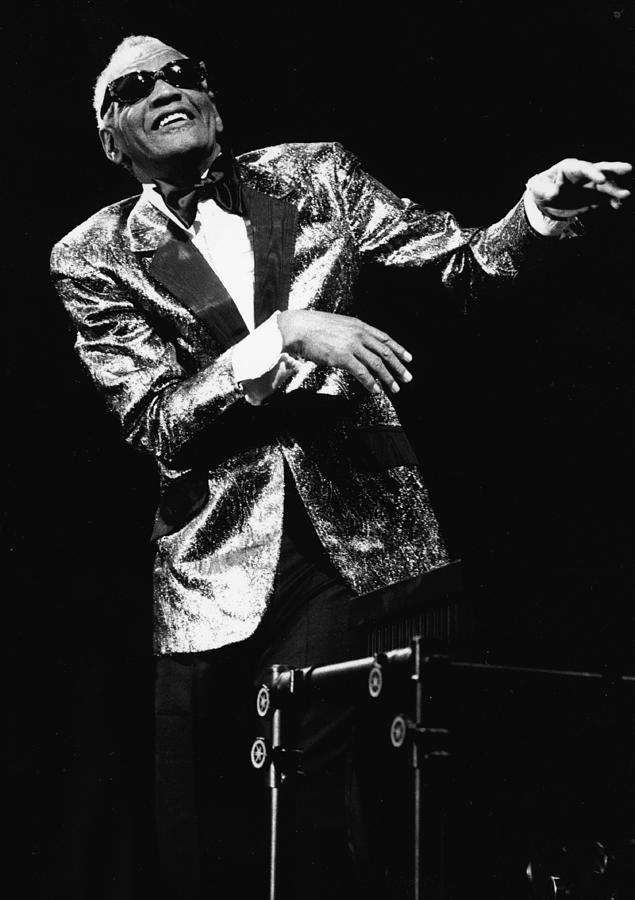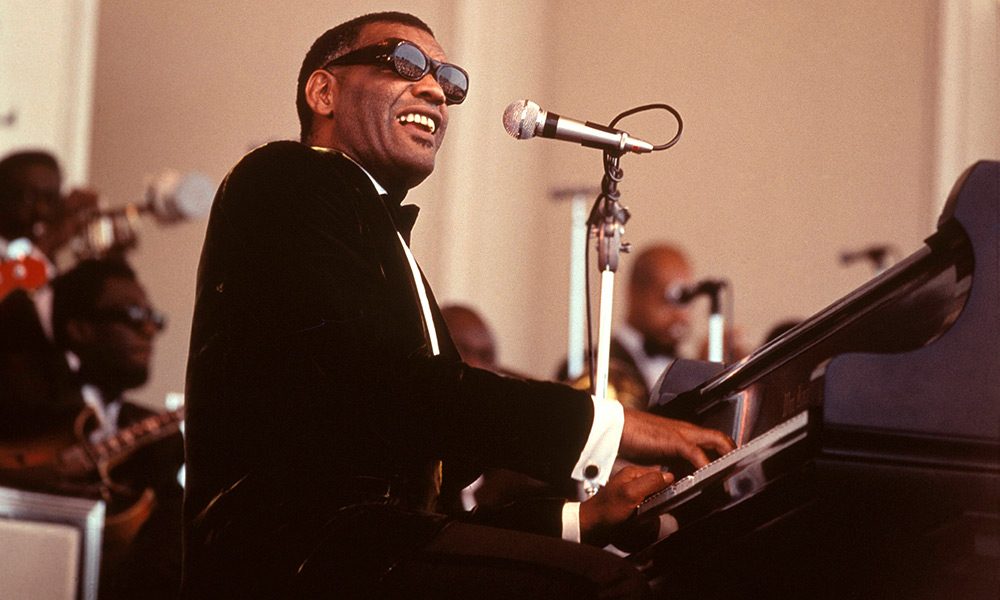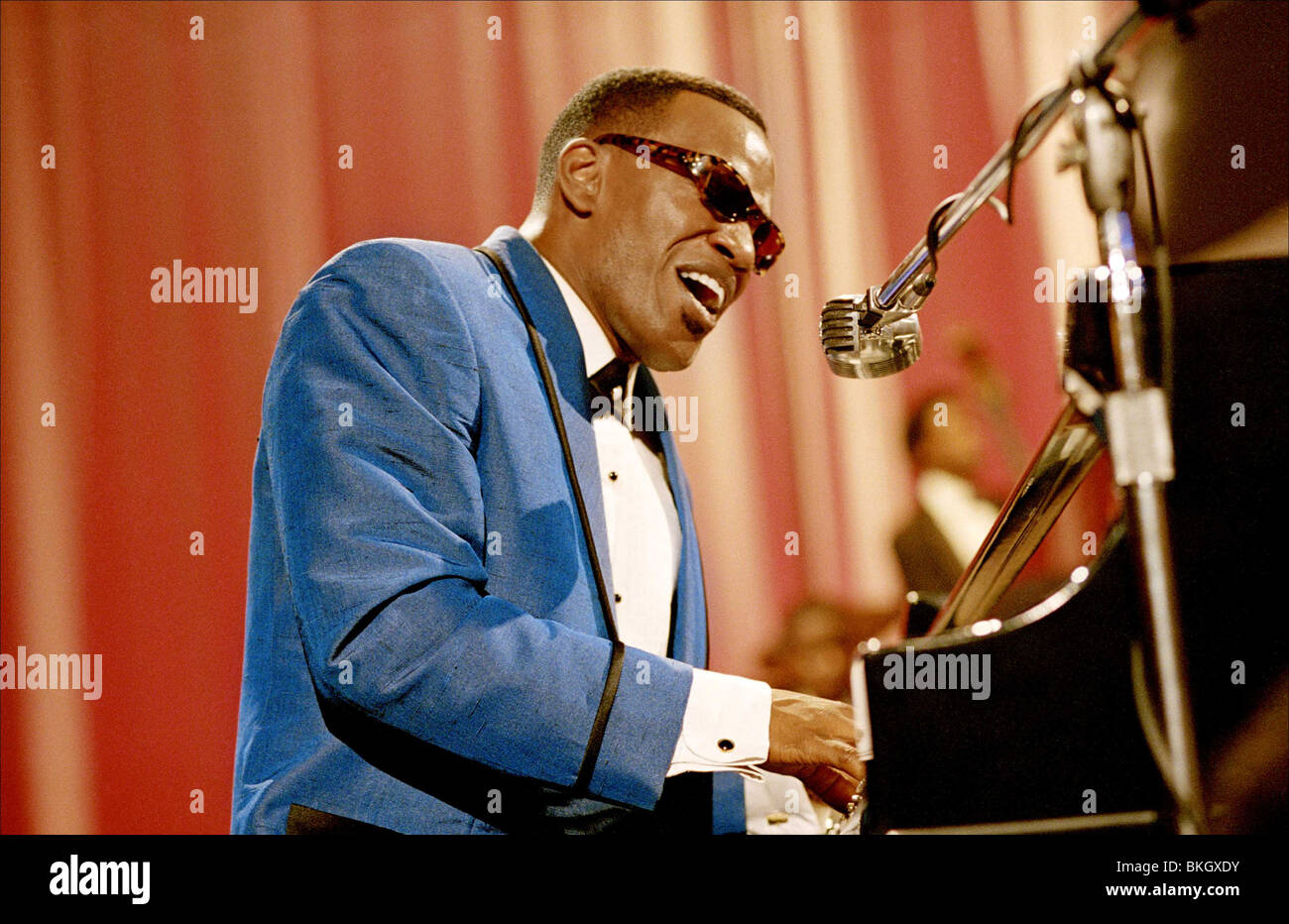When you think of legendary musicians who shaped the sound of American music, Ray Charles is a name that resonates deeply. His unique blend of genres and soulful voice created a musical revolution that still echoes today. From his early days in the music scene to becoming an icon, Ray Charles left an indelible mark on the world of music. This article dives deep into his life, career, and the lasting legacy he left behind.
Ray Charles was not just a musician; he was a trailblazer. His ability to seamlessly blend blues, gospel, jazz, and R&B created a sound that was revolutionary for its time. His music spoke to people across generations, transcending racial barriers and touching the hearts of millions. This guy didn’t just play music—he lived it, breathed it, and poured his soul into every note.
In this article, we’ll explore the life of Ray Charles, his contributions to music, and why his work remains so relevant today. Whether you’re a die-hard fan or just discovering his music, this journey through his life and career will leave you inspired. So, buckle up and get ready to dive into the world of one of the greatest musicians of all time.
Read also:Breaking Down The Myla Del Rey Leaked Controversy
Here’s a quick roadmap of what we’ll cover:
- Biography: The Early Life of Ray Charles
- Musical Journey: From Humble Beginnings to Stardom
- Genre Blending: Creating a Unique Sound
- Iconic Hits: The Songs That Defined a Generation
- Legacy: The Impact on Music and Society
- Challenges: Overcoming Adversity
- Awards and Recognition: Honoring His Genius
- Personal Life: Beyond the Spotlight
- Influence: Inspiring Future Generations
- Conclusion: The Timeless Genius of Ray Charles
Biography: The Early Life of Ray Charles
Let’s rewind to the beginning. Ray Charles was born on September 23, 1930, in Albany, Georgia. His full name was Ray Charles Robinson, and he grew up in Greenville, Florida. Life wasn’t easy for young Ray. His father, Bailey Robinson, worked as a handyman and his mother, Aretha Robinson, was a sharecropper. Despite their modest means, they instilled in Ray a strong work ethic and a love for music.
Tragedy struck early in Ray’s life when he lost his younger brother, George, to an accident at the age of five. This loss deeply affected him, but music became his solace. Around the same time, Ray began losing his sight due to glaucoma, and by the age of seven, he was completely blind. Instead of letting this setback define him, Ray embraced it with determination. He learned to play the piano by ear and developed an extraordinary musical talent that would soon captivate the world.
Key Facts About Ray Charles
| Full Name | Ray Charles Robinson |
|---|---|
| Birth Date | September 23, 1930 |
| Birth Place | Albany, Georgia |
| Occupation | Singer, Songwriter, Pianist |
| Genres | Blues, Jazz, R&B, Soul, Gospel |
Musical Journey: From Humble Beginnings to Stardom
Ray Charles’ journey into the music industry wasn’t an overnight success. After losing his sight, he attended the Florida School for the Deaf and Blind, where he honed his musical skills. By the time he was a teenager, Ray was already performing at local clubs and events. In the late 1940s, he moved to Seattle, where he formed his first band and started recording music.
His big break came in the 1950s when he signed with Atlantic Records. This partnership allowed him to experiment with different genres and create the signature sound that would define his career. Songs like “I Got a Woman” and “What’d I Say” became instant hits, showcasing his ability to fuse gospel, blues, and R&B into something entirely new.
Key Milestones in His Career
- 1953: Signed with Atlantic Records
- 1955: Released “I Got a Woman,” a groundbreaking hit
- 1959: Released “What’d I Say,” which became a chart-topping success
- 1962: Released the album “Modern Sounds in Country and Western Music,” which introduced country music to a wider audience
Genre Blending: Creating a Unique Sound
What set Ray Charles apart from his contemporaries was his fearless approach to genre blending. At a time when music was strictly categorized, Ray broke down those barriers. He took elements from gospel, blues, jazz, and R&B and created a sound that was both familiar and revolutionary. This ability to fuse genres earned him the nickname “The Genius.”
Read also:Eevie Aspen Nudes Leaked The Truth Behind The Headlines And What You Need To Know
His album “Modern Sounds in Country and Western Music” is a prime example of this. By reinterpreting country classics with a soulful twist, Ray introduced a new audience to the genre. It was a bold move that paid off, earning him critical acclaim and commercial success.
Why Genre Blending Was Important
Ray Charles didn’t just blend genres for the sake of it; he did it to tell a story. Each song he created was a reflection of his experiences and emotions. By combining different styles, he was able to convey a depth and complexity that resonated with listeners. This approach not only expanded the boundaries of music but also paved the way for future artists to explore new sounds.
Iconic Hits: The Songs That Defined a Generation
When you think of Ray Charles, certain songs immediately come to mind. Hits like “Georgia on My Mind,” “Hit the Road Jack,” and “What’d I Say” have become timeless classics. Each song tells a story and captures a moment in time. They’re the kind of songs that make you feel something deep in your soul.
“Georgia on My Mind” became Ray’s signature song and was even declared the state song of Georgia. Its haunting melody and emotional delivery showcase his incredible vocal range and ability to convey emotion. “What’d I Say” was a groundbreaking track that combined gospel, R&B, and rock ‘n’ roll into a danceable anthem that had audiences screaming for more.
Top 5 Iconic Songs
- “Georgia on My Mind”
- “What’d I Say”
- “Hit the Road Jack”
- “I Can’t Stop Loving You”
- “Unchain My Heart”
Legacy: The Impact on Music and Society
The legacy of Ray Charles extends far beyond the music he created. He was a pioneer who broke racial barriers and paved the way for future generations of artists. At a time when segregation was still prevalent, Ray refused to perform at venues that practiced racial discrimination. His stance on civil rights made him a respected figure in the fight for equality.
His influence can be seen in the work of countless artists who followed in his footsteps. From Aretha Franklin to Stevie Wonder, many cite Ray as a major influence on their music. His ability to blend genres and convey emotion through his voice remains unmatched.
How Ray Charles Changed Music
Ray Charles didn’t just create music; he changed the way we think about it. By breaking down genre barriers and using his platform to advocate for social change, he left an indelible mark on the music industry. His legacy continues to inspire new generations of artists to push boundaries and tell their stories through music.
Challenges: Overcoming Adversity
Ray Charles faced numerous challenges throughout his life, but he never let them define him. From losing his sight at a young age to battling addiction later in life, he overcame obstacles with resilience and determination. His blindness didn’t stop him from becoming one of the greatest musicians of all time, and his fight against addiction showed his strength and courage.
In the 1960s, Ray struggled with a heroin addiction that nearly derailed his career. However, he sought help and successfully overcame his addiction, proving that even the greatest talents can face personal struggles. His story is a testament to the power of perseverance and the importance of seeking help when needed.
Lessons from Ray Charles’ Challenges
Ray Charles’ life teaches us that no matter the obstacles we face, we can overcome them with determination and support. His ability to rise above adversity and continue creating music that touched the hearts of millions is a lesson in resilience and strength.
Awards and Recognition: Honoring His Genius
Throughout his career, Ray Charles received numerous awards and honors that recognized his contributions to music. He was inducted into the Rock and Roll Hall of Fame in 1986 and received the Presidential Medal of Freedom in 1993. These accolades are a testament to his impact on the music industry and his status as a cultural icon.
In 2004, the biographical film “Ray” brought his story to a new generation, earning critical acclaim and several Academy Awards. The film highlighted his struggles and triumphs, further cementing his legacy as one of the greatest musicians of all time.
Major Awards
- Inducted into the Rock and Roll Hall of Fame (1986)
- Presidential Medal of Freedom (1993)
- Grammy Lifetime Achievement Award (1987)
Personal Life: Beyond the Spotlight
While Ray Charles’ public life was filled with music and accolades, his personal life was just as fascinating. He was married twice and had twelve children with different women. Despite his busy schedule, he remained deeply connected to his family and often spoke about the importance of love and relationships.
His personal life was marked by both joy and challenges, but through it all, Ray remained true to himself. He was a man who lived life on his own terms and never shied away from being authentic.
Ray Charles’ Family
Ray Charles’ family was a source of strength and inspiration for him. His children carry on his legacy through their own musical pursuits, ensuring that his influence continues to be felt for generations to come.
Influence: Inspiring Future Generations
The influence of Ray Charles can be seen in the work of countless artists today. From soulful ballads to genre-blending anthems, his impact on music is undeniable. Artists like Alicia Keys, John Legend, and Bruno Mars have all cited Ray as a major influence on their music.
His ability to convey emotion through his voice and create music that speaks to the soul continues to inspire new generations of musicians. Ray Charles wasn’t just a musician; he was a cultural icon whose legacy will continue to resonate for years to come.
How Ray Charles Influences Modern Music
Ray Charles’ influence on modern music is evident in the way artists today experiment with different genres and styles. His fearless approach to music-making encourages artists to push boundaries and tell their stories through their art. This legacy of innovation and authenticity is a testament to his enduring impact on the music industry.
Conclusion: The Timeless Genius of Ray Charles
In conclusion, Ray Charles was more than just a musician; he was a cultural icon who changed the landscape of music forever. From his early days in Florida to becoming a global sensation, Ray’s journey was filled with triumphs and challenges. Through it all, he remained true to himself and continued to create music that touched the hearts of millions.
His ability to blend genres, convey emotion, and advocate for social change left an indelible mark on the music industry. His legacy continues to inspire new generations of artists to push boundaries and tell their stories through music. So, the next time you hear a Ray Charles song, take a moment to appreciate the genius behind it.
Don’t forget to leave a comment below and share this article with your friends. Let’s keep the legacy of Ray Charles alive and celebrate the timeless genius of one


